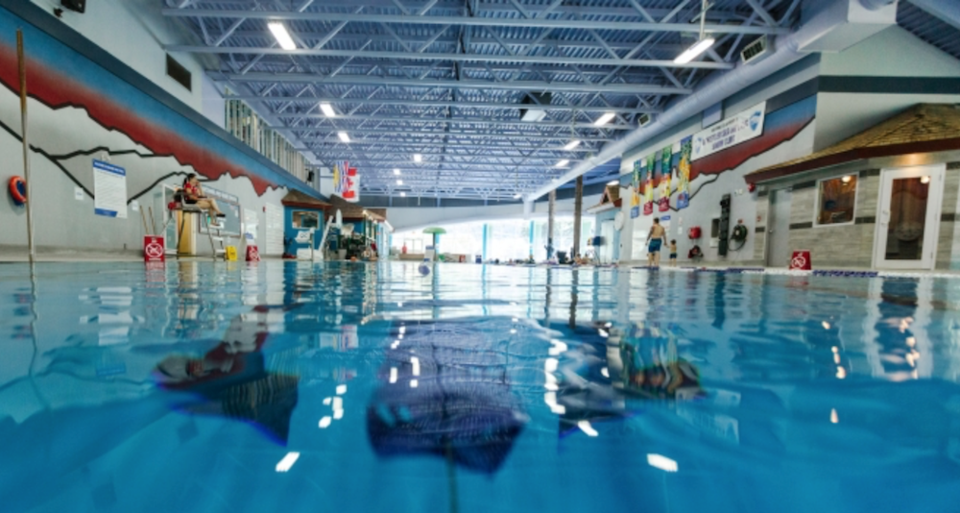Recreation fees in Whistler are set to increase again this fall as council approved a new bylaw aimed at maintaining cost recovery in the face of rising operational expenses, while continuing to prioritize affordability for local users.
On June 10, Whistler council gave first three readings to the amendment bylaw, which updates fees for Meadow Park Sports Centre (MPSC), Lost Lake Nordic Trails (LLNT), Whistler Olympic Plaza Ice Rink (WOPIR), and indoor and outdoor facility rentals.
The new rates are expected to generate roughly $340,000 in additional revenue over the next two years—equivalent to a 0.6-per-cent property tax increase, according to recreation manager Roger Weetman.*
“We’re doing this, in essence, to balance that conundrum of: do we raise taxes to provide what we need for our operations?” said Weetman during his presentation to council. “We are having rising costs, but at the same time, we try to keep those up with user fees while balancing that with affordability.”
Key increases include:
- A 10-per-cent hike to arena rental rates, identified as underpriced compared to similar facilities.
- A five-per-cent increase to Meadow Park adult drop-in and pass rates.
- A 5.8-per-cent increase to Lost Lake Nordic ski passes and day tickets.
- A 9.1-per-cent increase to WOPIR admissions and skate rentals.
- A three-per-cent increase to most indoor and outdoor rental rates.
The changes follow detailed comparative analyses with other resort and regional municipalities, including Squamish, and were guided by Whistler’s Council Policy I-06. Meadow Park’s cost recovery rate has climbed to 53.4 per cent, exceeding the industry norm of 30 to 40 per cent.
The new bylaw also includes several pilot programs aimed at improving affordability and service quality. A new 10-time pass for WOPIR will be introduced at a discounted rate, while the ski assurance program for LLNT will be reduced from 70 to 50 days to align with Whistler Olympic Park and mitigate financial risks during low-snow years.
Staff are also piloting a new snowshoe night rate for Lost Lake, and rounding down prices for select affordability products, such as reducing half-price evening swim fees at MPSC from $5.25 to $5.
“We figured out that 20 per cent of our passes are what we call affordable products,” Weetman told council. “So in essence, you can tell that there's an appetite for affordable products in the community.”
Discussion at the meeting also touched on facility congestion and the feasibility of peak pricing to manage crowding during high-use hours.
Councillor Jen Ford noted how “it’s so busy” in mornings at Meadow Park, and wondered if expanded hours are on the table, while Coun. Cathy Jewett asked whether other communities have adopted variable pricing to even out usage patterns.
“Other communities are experiencing the same issues at certain times,” said Weetman, explaining that while off-peak pricing exists, peak pricing has not been explored.
When Ford asked about expanding pool hours, staff cited ongoing recruitment challenges and reliance on young staff reluctant to work late evenings. “When we resume our staff levels to this place where we're comfortable resuming, for example, operating until 10 p.m. again, then that's a conversation I'm very happy to have. We're not there as of yet,” said Weetman.
Council also revisited the idea of charging out-of-town users more for services, a concept previously studied but ultimately rejected due to administrative challenges.
“It was interesting to learn that 20 per cent of our pass holders, pretty much right now, are ... from out of town, with most being either Pemberton or SLRD. That is the reality," Weetman said. "We've also come to recognize that most of those people are indeed working in our community. So, there's a balance there as well.”
Coun. Arthur De Jong questioned whether locals are aware of how much the municipality subsidizes recreation, prompting staff to suggest future communications could help raise awareness.
A full communications plan is expected to roll out in the coming weeks to inform the public of the upcoming changes.
The updated fee schedules are set to take effect Sept. 1 for most services, with other changes coming into force by January 2026. Staff may return to council to formalize some of the pilot programs in the coming year.
*The original version of this story said the increase would be equivalent to a one-per-cent property tax increase. An RMOW official later clarified Weetman was "speaking off the cuff," and the $340,000 "represents closer to a 0.6% tax increase."




